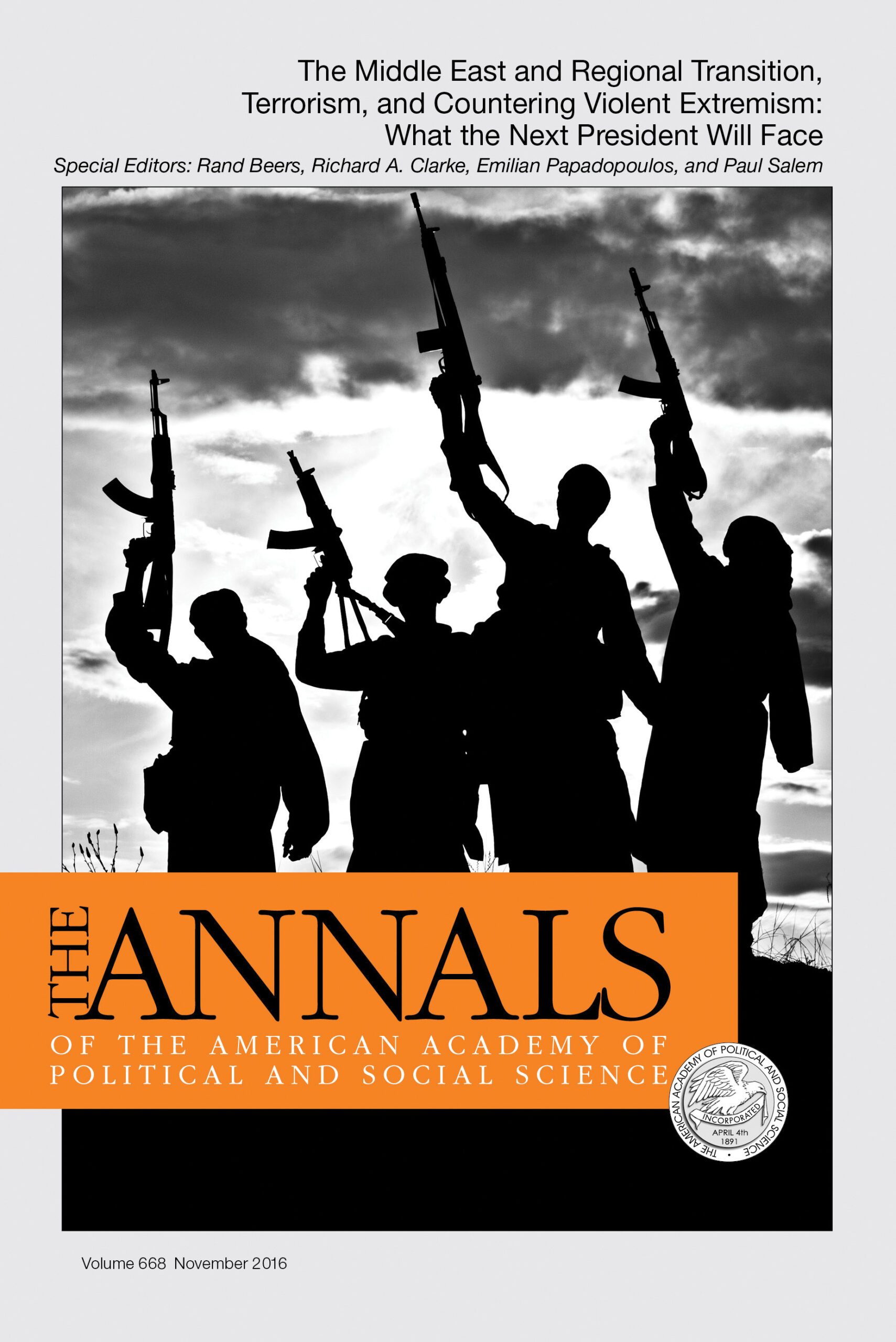The next president will face enormous challenges in dealing with terrorism—a threat to global stability and national security that has changed considerably over the course of the Obama presidency. This volume of The ANNALS is a briefing for the next president on violent Islamist extremism and what can be done to combat and contain it.
Our analysis is in two parts. First, we give a careful accounting of terrorism as a force that is riling the nation states of the Middle East and Africa, where terrorists are fighting a civil war within Islam. The high water mark of ISIS control of cities and lands will have passed by the time the next president takes office, but the well spring of ideology and discontent into which it taps will still be strong. Nations in the Middle East region lay in shambles, with millions in refugee camps. Rebuilding from the recent spasm of civil wars would cost hundreds of billions of dollars even if funds were available, political settlements seem far off and failed, factionalized states seem likely to continue for the foreseeable future. We assess the causes and consequences of this state of affairs and explore pathways forward.
Second, we examine terrorism as an issue of domestic security for the United States and its Western allies, particularly in Europe. Here, we focus on the relatively new but promising field of CVE—countering violent extremism—in which institutions of government and private actors are learning what it takes to de-radicalize individuals, de-escalate movements, and promote peace in the citizenry.
This volume reveals how “terrorism” has been the result of 1) socioeconomic and political turmoil in the Middle East, interacting with 2) the alienation of Muslims in the West while refugee flows have risen sharply, and 3) a strong, violent and anti-Western ideological movement that is battling for control of Sunni Islam. The next president needs a strategy that will be adaptive but keep the administration and allies focused in turbulent times. Even if ISIS is defeated, violent Islamist extremism will persist, and the administration will need local partners to rebuild and even to resettle the cities that ISIS once called its own.
The duration and depth of the current instability might be reduced by pursuing bold initiatives such as major economic investment and trade, and some authors here suggest such large-scale efforts. We also show how effective CVE programs could have dramatic impact if scaled and resourced properly—the volume demonstrates the promise of CVE, but it will need to be nurtured with continuous, senior-level government involvement and support.
Finally, active and creative leadership by the United States is necessary to address the regional challenges and mitigate the security risks discussed in this volume—U.S. leadership is inescapable, but it will still be insufficient to the achievement of significant and lasting results.

